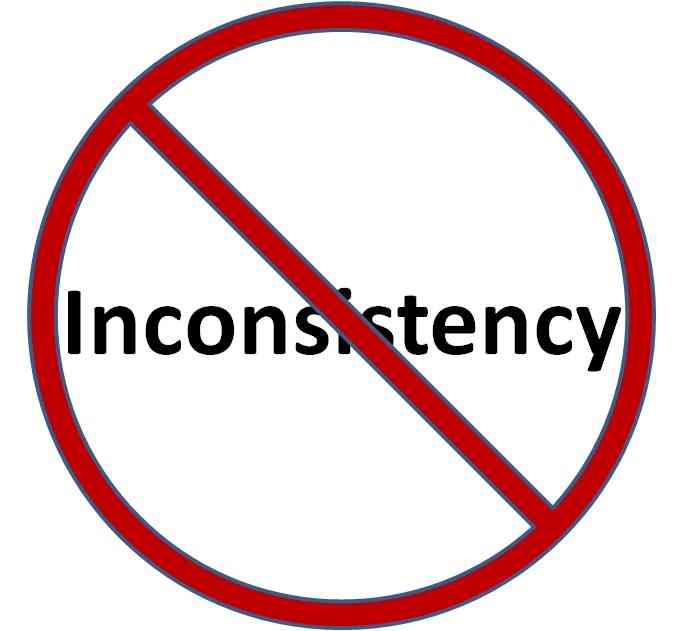
COGNITIVE dissonance is a psychological phenomenon that occurs when our actions and our beliefs do not align.
It is the mental discomfort we experience when we hold two or more conflicting thoughts, values or behaviours.
This dissonance creates unrest in our lives, often manifesting as stress, guilt or feelings of inauthenticity.
When left unresolved, it can prevent us from feeling centred, aligned and at peace with ourselves.
At the heart of resolving cognitive dissonance lies integrity.
Integrity is the state of being whole and undivided, where one’s actions are consistent with one’s values and principles.
There is no substitute for integrity when it comes to peace of mind; without it, we risk drifting further into self-deception and dissatisfaction.
To better understand cognitive dissonance, consider the case of a patient diagnosed with a medical condition that can be managed with a few lifestyle changes.
- Afreximbank delegation to attend Africa Energy week
- Divine insight: Let Godly leaders arise
- COP27: We're on a highway to climate hell, U.N. boss says
- What happens right after we die?
Keep Reading
This patient, let us call them Patient X receives thorough information from their doctor and fully understands the benefits of making healthier choices.
Despite this knowledge, Patient X continues with the same habits.
Each day, they feel disappointed in themselves, torn between the belief that they should live differently and the actions that contradict that belief.
This internal conflict creates not only emotional strain, but also physical unease.
Dissonance often makes us feel fake or unsettled.
Studies show that the stress it creates can even cause measurable physical discomfort.
Conversely, when we practise integrity ie our actions match our values we feel authentic, stable and peaceful.
It is worth pausing here to reflect: in what area of your life are your actions not aligning with your values?
Recognition is the first step towards resolution.
There are three primary ways to resolve cognitive dissonance:
Avoid self-deception and indignation
When faced with the discomfort of dissonance, it is tempting to justify or rationalise our choices.
We might shift reality to suit our actions instead of adjusting our actions to fit our values.
This defence mechanism only wastes energy and often produces negative emotions that spill over into our relationships.
Self-deception may temporarily dull discomfort, but it perpetuates cycles of guilt and frustration.
Signs of self-deception include victimhood thinking, resentment and internalised aggression.
These not only harm us but also affect those around us.
Rather than blaming circumstances or others, it is more constructive to ask: Am I seeing the situation clearly?
Seek clarity and practise introspection
Dissonance can be confusing, but it often signals where growth is possible.
Taking time to reflect allows us to identify whether our discomfort stems from thoughts that need reframing or behaviours that require change.
Introspection brings us face-to-face with our choices, opening the door to transformation.
Take responsibility and act where possible
True resolution comes when we assume responsibility for the aspects of life we can control.
This means resisting the urge to exhaust ourselves by trying to change others or circumstances beyond our reach.
Instead, we can begin realignment in three ways:
- Change a thought that conflicts with your values.
- Change a behaviour that contradicts your beliefs.
- Adjust your rationalisations to match reality, though this should be approached carefully, as it can veer into self-deception if misused.
The difficulty of this process should not be underestimated.
Recognising cognitive dissonance can feel physically uncomfortable, as though our very sense of self is under threat.
Yet, the discomfort is also an invitation to grow.
History and literature offer striking examples of cognitive dissonance.
A biblical one is Pharaoh during the 10 plagues of Egypt.
Despite overwhelming evidence that his stance was harmful, Pharaoh refused to release the Israelites.
His authority and personal views contradicted reality and his refusal to resolve that dissonance ultimately led to destruction.
This story reminds us that our beliefs can either build or destroy, depending on whether we align them with truths.
Ultimately, cognitive dissonance challenges us to live with integrity.
It confronts us with the gap between who we are and who we aspire to be.
While uncomfortable, it is also a gift, pointing us towards the areas where healing, honesty and growth are most needed.
By avoiding self-deception, practising clarity and taking responsibility, we can close the gap between belief and behaviour and in doing so, find peace of mind.
- Rutendo Kureya is a medical student at Saint Petersburg State Paediatric Medical University, Russia. She is passionate about issues concerning the state and welfare of fellow Zimbabweans. She can be reached at kureyaru@gmail.com. Mobile: +7 996 274 9866 Facebook: Rutendo Kureya. She writes here in her personal capacity.










